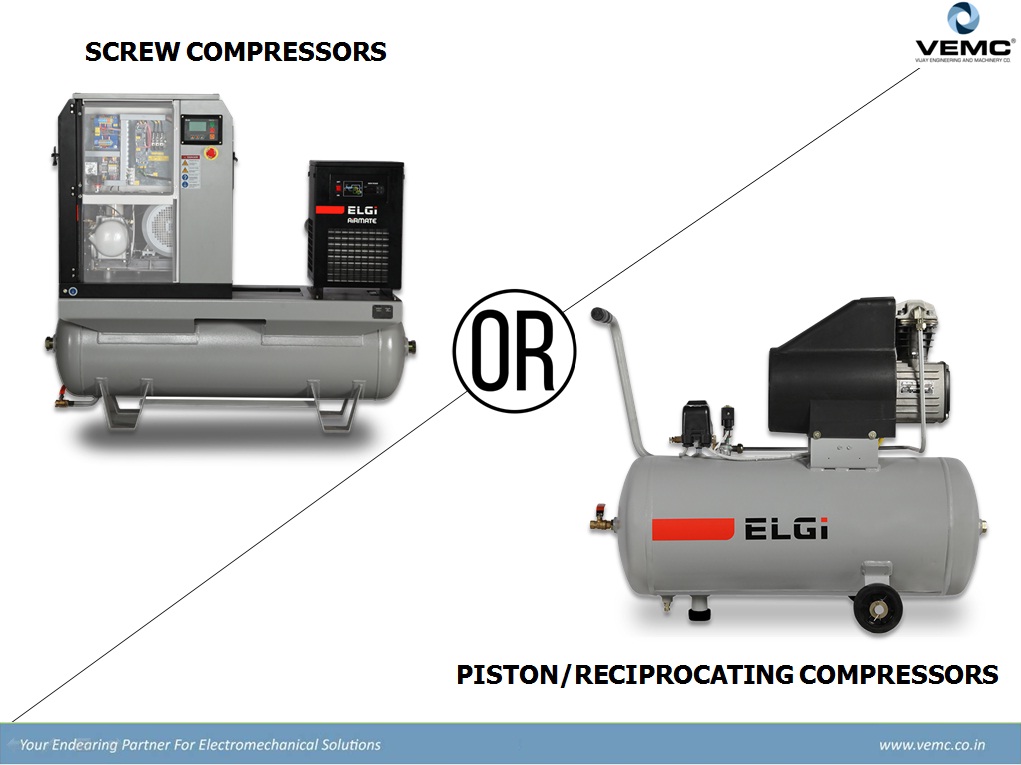
In recent times, more and more industries rely on compressed air and are, sometimes, called the 4th utility of any industry. When looking for an air compressor, there are different types of compressor like Reciprocating compressor, Vane Compressor, Screw Air Compressor, Diaphragm Compressor, Centrifugal Compressor, and so much more. We will talk about the 2 popular types of compressor, namely the reciprocating and screw air compressor (also known as the rotary compressor). Users often get confused between these 2 variants during purchase; however, in order to make the correct decision, you will need to understand how they operate.
Reciprocating Compressor
In a reciprocating compressor, air is taken into a cylinder and then compressed to a higher pressure with a piston using reciprocating motion (much like an engine). Piston compressors are the most common type of compressor used in most industries because of their lower capital investment. These compressors, however, make a lot of noise and vibration. As the compressor operates on reciprocating motion, there is pulsating air produced, which causes the inlet and outlet valve blades to open and close multiple times a second, making higher noise levels. Most air compressors manufacturers provide an allowable duty cycle of 60%-70%. That said, a general recommendation is that when your compressor is idle for more than 50% of the time, it is best to go for a reciprocating compressor. Piston compressors are usually oversized to allow some idle time as they operate at higher temperatures. BAC Reciprocating Compressor ranges from 0.5HP to 20HP and are manufactured to industry standards to withstand above 70% duty cycle.
Screw Air Compressor
Screw air compressor consists of 2 rotors, rotating in the opposite direction, compressing air between the lobes to a higher pressure. Since the rotors are rotating and not reciprocating, there is minimal vibration, wear, and downtime compared to a reciprocating compressor. In a reciprocating compressor, there is a high friction loss between the piston rings and cylinder compared to a screw compressor where their rotors are non-contact. The air produced is continuous and prevents the inlet and outlet valves opening and closing continuously, thereby reducing noise to significantly lower levels. Screw compressors are especially good in medium-scale and large-scale industries where there is a continuous requirement of air. These compressors do not prefer idle time and long periods of idle time, which sometimes causes issues. Rotary Screw compressor requires a higher capital investment, but provides better efficiency and faster ROI. There are 2 types of screw air compressor fixed speed and variable speed compressors, each having its own advantages. BAC’s screw compressors currently range from 7.5 hp to 60 hp, and also provide custom combinations for getting the best out of your investment.
If you are in search for a reliable and professional supplier of Reciprocating or Screw Compressors, you can contact Vijay Engineering And Machinery Company – the Authorised Distributors of Elgi Compressors and Spare Parts.

